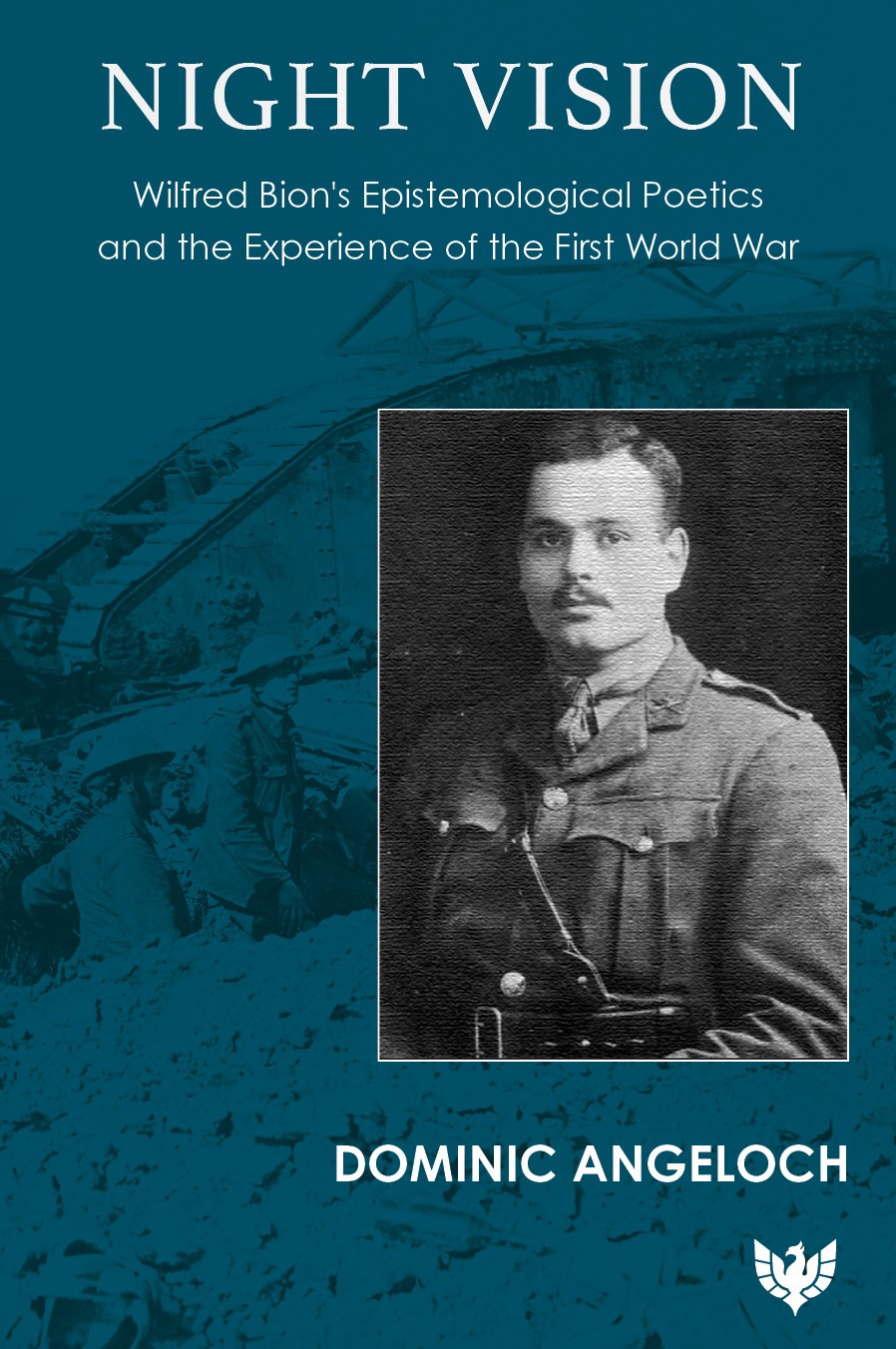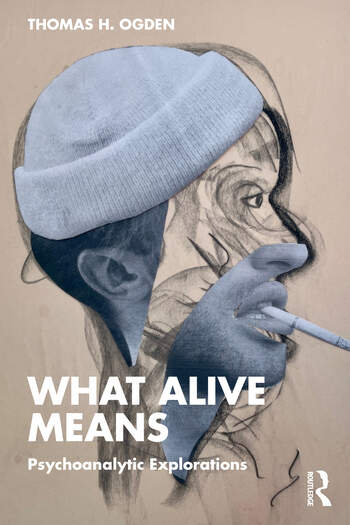The Death Drive: A Contemporary Introduction
Part of Introductions to Contemporary Psychoanalysis series - more in this series

Book Details
- Publisher : Routledge
- Published : August 2024
- Cover : Paperback
- Pages : 120
- Category :
Psychoanalysis - Catalogue No : 97779
- ISBN 13 : 9781032687414
- ISBN 10 : 103268741X
There are currently no reviews
Be the first to review
This comprehensive yet accessible book analyses the clinical and historical experiences that led to the radical, complex and fundamental psychoanalytic concept of the death drive.
In The Death Drive: A Contemporary Introduction, Rossella Valdrè traces the path that led Sigmund Freud to theorise this key concept in his essay, Beyond the Pleasure Principle. She considers its roots in Freud’s experiences of war trauma and his assessment of the human compulsion to repeat, as well as its consequences on his later theoretical and clinical work. Short vignettes from the clinician’s room and examples from books and films introduce the reader to the birth and development of the concept, its biological and philosophical roots, and its many clinical implications. Valdrè also reviews its varied reception among post-Freudians, and examines the controversies and questions that the death drive commonly engenders within the psychoanalytic community. She concludes by considering the death drive through the medium of art, its relationship with sublimation and the confirmation neuroscience is beginning to provide.
Written in a style that is at once accessible and precise, this book is an invaluable tool to students and psychoanalysts in training approaching the theory for the first time, as well as practising analysts, postgraduate students and scholars familiar with the concept and looking to explore it further.
Reviews and Endorsements
Dr. Rossella Valdrè’s introductory book on the complex and difficult topic of the death drive is clear, easy to read, and rigorous.
Among psychoanalysts there is no agreement on this Freudian concept, which has been remarkably successful in the field of culture, but has not convinced a significant portion of the psychoanalytic profession and has encountered outright rejection from another portion.
Freud came to hypothesise a self-destructive drive driven by two needs: to explain the failures of analytic work stalled by the tendency of various patients to repeat the traumatic experience, their steely determination to perpetuate their malaise; to make clear the human destructiveness so dramatically manifested in World War I.
With his theorisation of the death drive, Freud laid the cornerstone of his model of the homeostatic functioning of human mind-body matter: the tendency to return to a previous state of tension (to the constant level of minimal tension - the constancy principle, or to the total absence of tension - the nirvana principle). This model forms the basis of every human being’s defensive structure.
Criticism of Freud primarily concerns the difficulty of applying the concept of the death drive in the clinical field without a certain degree of schematisation. Repetition compulsion does not require a biological foundation of its interpretive value. The same is true of the economic discourse on masochism and in general the quantitative, defensive functioning of the psyche that obeys the logic of need. Structural resistance to transformation in analysis is best explained by the rejection of the feminine.
The death drive seems rooted, from the very French analysts who most support its metapsychological importance, in the psychic impoverishment produced by its contraction that the destruction of the tie with reality causes: the “desire not to desire” (Aulagnier), the “work of the negative” that unties instead of tying representations together (Green).
In her book Valdrè gives due importance to masochism. The link made by Lacan between masochism/death drive and malign enjoyment is well known: the pursuit of unlimited pleasure, the deadly, perpetual hunger for pleasure. In the wake of his hypotheses, the idea of the sexualization of the death drive took hold in France.
Malign enjoyment has nothing to do with true enjoyment. Its presence stems from the dissolution of sexual difference that greatly hinders the unfurling and satisfaction of desire. Frustration creates tension that must be discharged. Desire is thus perverted into need. A vicious circle is created in which tension is produced and discharged. Because true fulfilment is not achieved, tension is recreated and is discharged again. Tension is constantly being produced, discharged, recreated, and discharged anew. The eclipse of desire and its perversion into need have a depressive effect. On the one hand, one desperately tries to keep alive desire perverted into need and on the other hand, one tries to feel alive instead of being alive and enjoying it, and remains in a loop of alternating between arousing and calming devices that mimic orgasm. Malign enjoyment is the fate of the frigid subject.
One might think that deadly masochism has its unconscious core in the identification with death, where sadism and masochism coincide, in wanting to be death, in the dual meaning of the omnipotent triumph over everything and the zero degree of tensions, the state of absolute Nirvana.
The death drive captures a condition of the human being, regardless of its roots in biology, which is more immediately tied to masochism than sadism. The psychic apparatus subjected to the “work of the negative,” which operates through the reduction of the complexity of feeling, thinking and being into patterns of mechanical, performative action, finds in the paranoid, aggressive setting not only a containment of depression (caused by the contraction of the relationship with reality) but also an effective way to discharge and defensively compact the organism. Destructive action is exquisitely self-destructive (destroying the other to destroy one’s own suffering humanity) and sadistic excitement is inhabited at its core by masochistic excitement.
Valdrè approaches these difficult topics, so important for understanding human beings, with expertise, intelligence, and curiosity. Her book is very useful for any reader interested in psychoanalysis.
Sarantis Thanopulos, President of the Italian Psychoanalytical Society and Training Analyst
Table of Contents
Introduction
1. The death drive in Freudian thought: theory and historical context 2. Death wish or death of desire?
3. A controversial concept: the death drive in the post-Freud era
4. How is the ‘silent’ drive expressed? Masochism’s dangerous derivative
5. Clinical and artistic examples of the death drive in the individual and in social groups
6. The death drive and sublimation: a dangerous relationship
7. The reason for a fundamental concept on human nature
8. Future developments: the contribution of neuroscience
Conclusions
About the Author(s)
Rossella Valdrè is a psychiatrist and psychoanalyst and a member of the SPI (Società Psicoanalitica Italiana) and the IPA (International Psychoanalytical Association). A graduate of the University of Genoa, she trained in Genoa and then in Milan. After her early years in institutional work, in recent years she has concentrated on her private psychoanalytical practice whilst she is also a supervisor in institutional environments and a court-appointed expert for the Juvenile Courts. For some years now she has been teaching psychoanalytic theory at the Faculty of Psychology of Genoa University. Her interest in cinema and psychoanalysis has led to the publication of film reviews (www.spiweb.it) and the presentation of films in different psychoanalytic centres. She is author of the book La lingua sognata della realtà. Cinema e psicoanalisi nell’esplorazione della contemporaneità (The dream language of reality: Cinema and psychoanalysis in the exploration of contemporaneity, published by Antigone, 2013). In addition to cinema, her fields of interest include the extension of psychoanalysis into the world of culture, art, literature and society, always connecting and interpreting in the light of psychoanalytic theory, with particular attention to Freudian metapsychology. Author of work and reviews in the Rivista di Psicoanalisi, film essays in the International Journal and book reviews in the Revue Francaise de Psychanalyse, she lives and works in Genoa.
Customer Reviews
Our customers have not yet reviewed this title. Be the first add your own review for this title.
You may also like
Autistic Phenomena and Unrepresented States: Explorations in the Emergence of...
Howard B. Levine
Price £26.09
save £2.90
Night Vision: Wilfred Bion's Epistemological Poetics and the Experience of the...
Dominic Angeloch
Price £26.09
save £2.90










